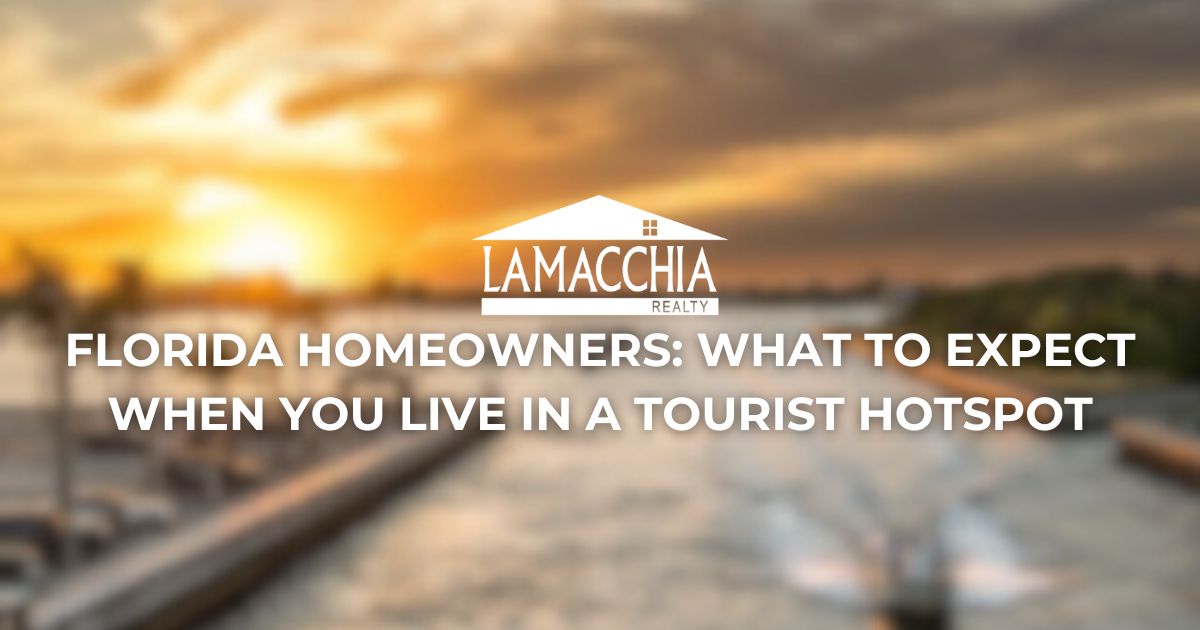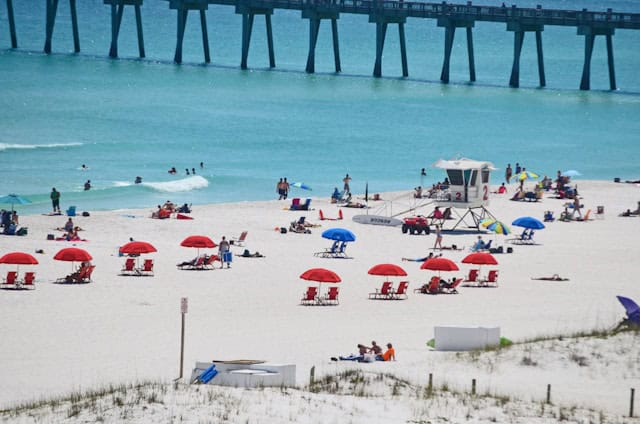
Florida is famous for its beaches, warm climate, and as a top vacation destination. If you’re contemplating buying a home here and joining Florida homeowners, you might wonder what to expect when you live in a tourist hotspot. Living amidst Florida’s tourist attractions presents unique opportunities and challenges, from cultural exchanges to heightened seasonal activity that can influence daily life and property decisions.
Benefits of Living in a Tourist Hotspot
So, why consider living where others vacation? Firstly, there’s the economic angle. Homes in tourist areas often see higher property values due to constant demand, which can mean a good return on investment if you ever decide to sell your home. Also, there’s potential for rental income. Many homeowners take advantage of peak tourist seasons by renting out their properties, which can cover mortgage payments or fund upgrades.
Culturally, being in a tourist hub means there’s always something new around the corner. You’ll enjoy regular access to international cuisine, festivals, and varied social scenes at your doorstep. The improved infrastructure—better roads, parks, and public services—is often part of the package, thanks to the revenue from tourism.

Challenges Faced by Homeowners
However, living in a tourist hotspot can have its downsides. For instance, the influx of visitors can lead to crowded streets and noisy neighborhoods, especially during peak travel seasons.
Effectively managing the perks and the pitfalls ensures you get a balanced view of what to expect when you live in a tourist hotspot. Understanding these aspects is important whether you thrive in these dynamic environments or seek quieter living spaces.
High Costs Can Be a Big Challenge
Areas popular with tourists tend to have higher living costs. Everything from grocery prices to utility rates can climb, pushed by the increased demand. Also, property taxes can spike as municipalities capitalize on the booming local economy. Buying or renting a bigger space is out of reach for many people, and that can leave many homeowners with crowded spaces, and one of two choices: look for storage services in the area or declutter their homes. However, renting storage in such areas alleviates the stress of cramped living space and offers a practical solution for managing belongings without the need to move or invest in larger, more expensive properties. Plus, that can significantly help to declutter by providing a designated space to store seasonal items, sports equipment, or seldom-used possessions, freeing up valuable living space and reducing household clutter.
Practical Tips for Florida Homeowners
Living in a tourist hotspot requires clever strategies to ensure your home remains a sanctuary. Here are a few tips:
- Prioritize Privacy: Install fences and consider using privacy landscaping to create a buffer between your home and the bustling tourist activity.
- Soundproof Your Home: Invest in soundproof windows and walls to keep the party outside from disturbing your peace.
- Legal Know-how for Rentals: Ensure you’re current with local regulations if you rent your property. Short-term rental laws can be strict, and staying compliant avoids hefty fines.
In addition, the influence of local community features on property values can’t be overstated. Living near popular attractions can raise your home’s market value, making it a profitable asset if you decide to sell. This aspect encourages homeowners to maintain and upgrade their properties, knowing that these efforts contribute directly to their investment’s growth.

Engaging with Your Community and Tourism
Consider your role within the community among the Florida homeowners and the local tourism board. Being active in these groups can give you a voice in how tourist activities are managed:
- Attend community meetings.
- Volunteer for local events.
- Provide feedback to tourism boards.
Such involvement ensures that the needs and concerns of permanent residents are considered in tourist planning. This proactive approach enhances your living experience and helps promote the most common Florida home styles and community values to visitors, potentially increasing interest and respect towards the area.
Future Trends in Tourist Hotspots
It’s vital to stay informed about trends that could affect your situation:
- Sustainable Tourism: More tourists are looking for eco-friendly travel options. Homes that offer green features are becoming more appealing.
- Digital Nomad Market: With remote work on the rise, properties that cater to long-term stays for digital nomads could see increased demand.
Understanding these trends can guide you in making smart updates to your property, ensuring it remains attractive and functional in a changing market.
What to Keep in Mind When Moving To a Tourist Hotspot
Moving to a tourist area like Florida’s coasts during high season can be exciting and overwhelming. Here are some tips to ensure your move is as smooth as possible, especially during the peak times when tourist activity is at its highest:
- Plan: Book your moving services well in advance. High season means high demand for logistics and accommodations.
- Choose the Right Time: Move on weekdays or early mornings when there is lower tourist traffic. This strategy can significantly reduce the time spent in traffic and streamline your moving process.
- Secure Accommodations Early: If you need temporary housing, secure it early. Tourist hotspots can run out of available options quickly during peak season.
- Stay Informed: Keep an eye on local events that might affect traffic and accessibility to ensure you can navigate around any disruptions smoothly.
In navigating these challenges, choosing a trusted mover is important. Coastal Van Lines offers services tailored to ensure your move is handled with care and precision. They specialize in managing logistics during peak tourist times, helping to schedule moves during lower traffic periods like weekdays or early mornings, which can significantly reduce the time spent in transit. Their customer-centric approach ensures that every aspect of your move is covered, from packing and transportation to unloading and setup at your new home, providing a seamless transition even during the busiest times.

Conclusion
Knowing what to expect as a Florida homeowner living in a tourist hotspot can help you maximize the benefits and manage the challenges. Your home can thrive amid the busy environment. Embrace the unique opportunities your location offers, and you’ll enjoy your home more and enhance its value for the future.
